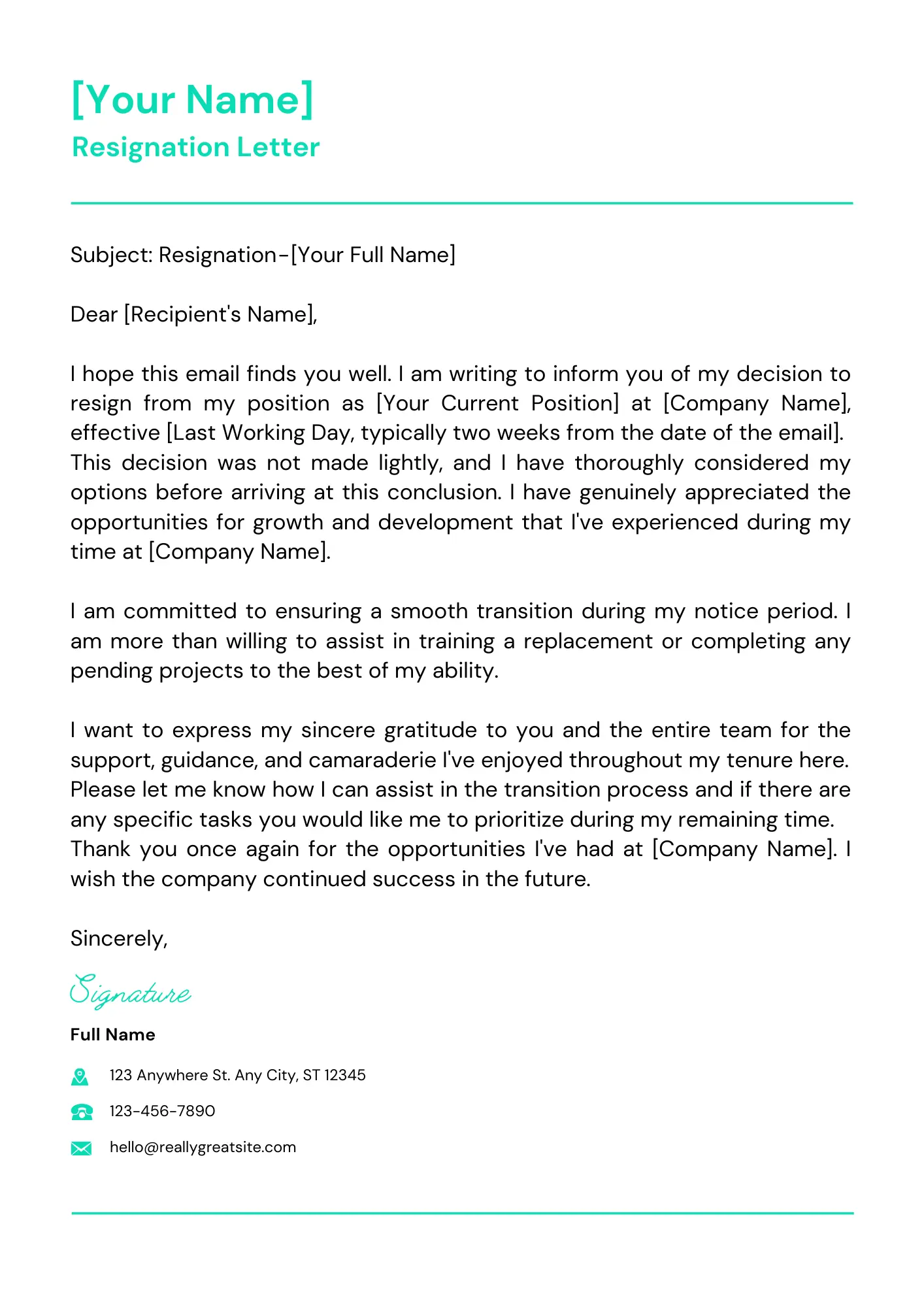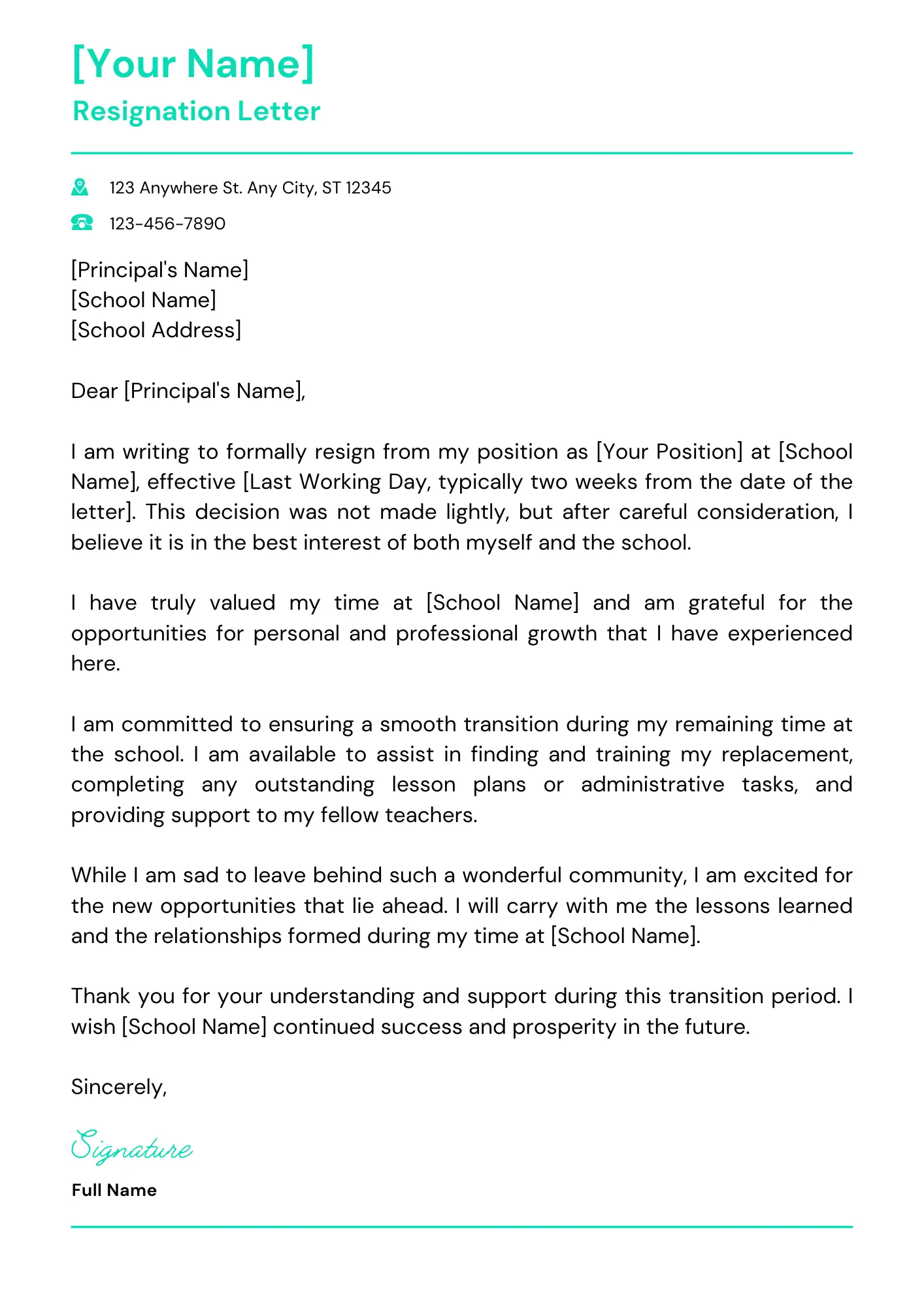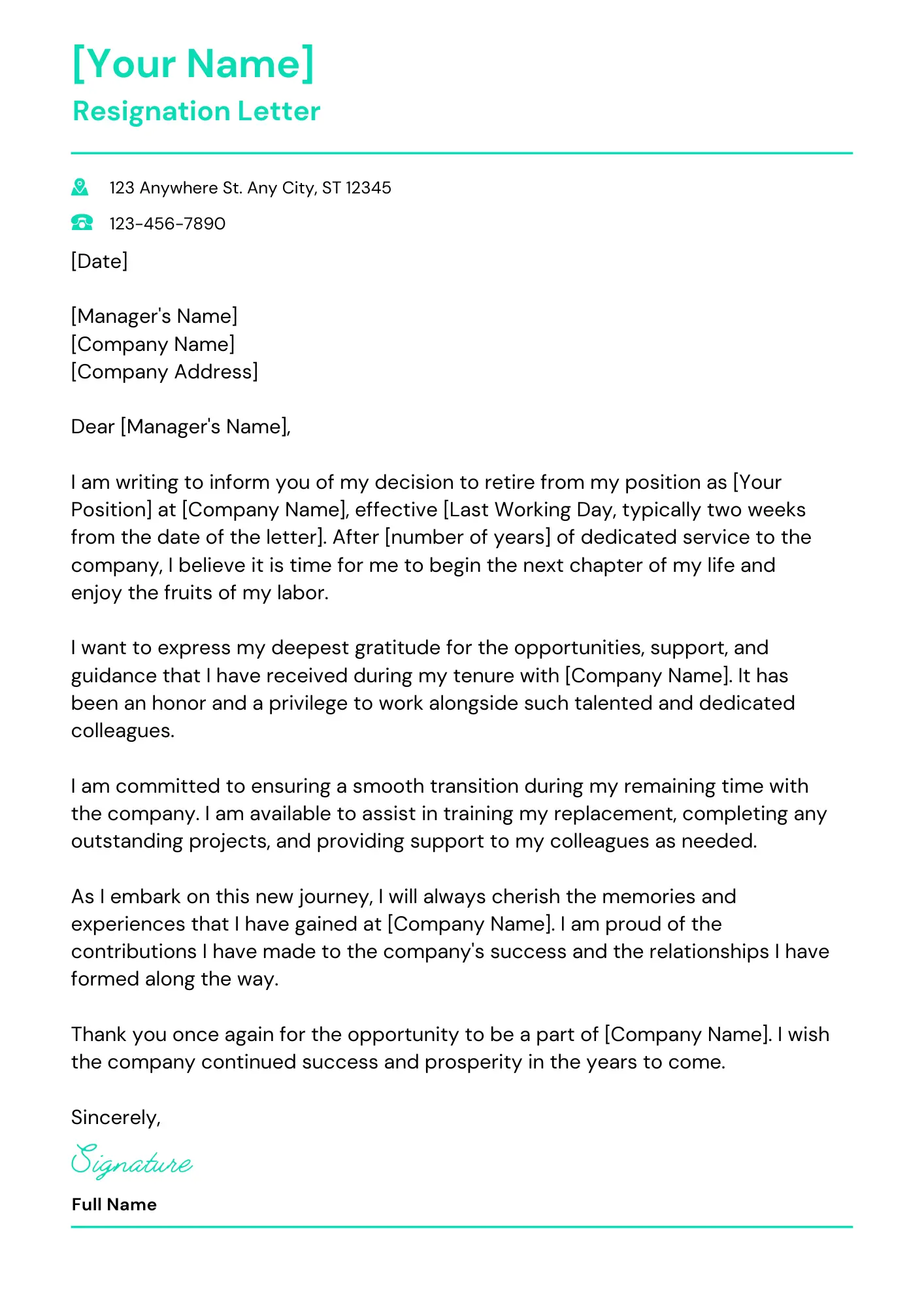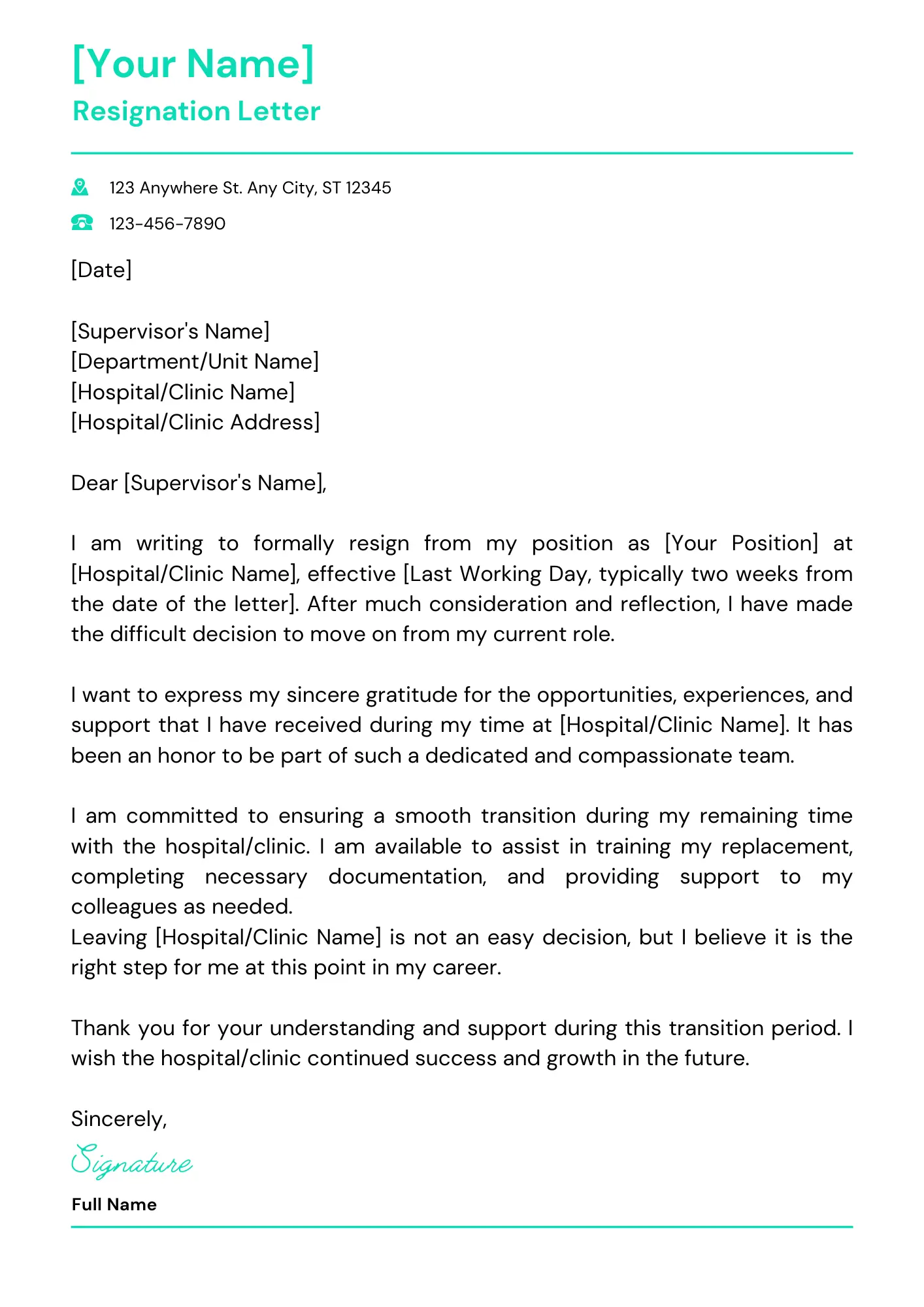How to write resignation letter?

How to write resignation letter?
Introduction
Resigning from a job is a significant milestone in one's career journey. Whether you're moving on to pursue new opportunities, seeking a better work-life balance, or simply transitioning to a new phase of life, crafting a well-written resignation letter is essential. A resign letter serves as a formal notice to your employer, conveying your decision to leave the company in a professional and respectful manner.
In this guide, we'll delve into the art of composing a compelling resignation letter that reflects gratitude, professionalism, and clarity. From understanding the purpose of a resignation letter to navigating sensitive conversations with your employer, let's explore the nuances of this crucial communication tool.
We'll provide resignation letter examples and templates, including short resignation letter, simple resignation letter, and formal resignation letter samples. Whether you prefer a letter of resignation template in Word format or a handwritten note, we'll cover the best practices to ensure your message is clear and respectful.
- Resignation Letter Email Example
- Resignation Letter for Teacher
- Retirement Resignation Letter
- Nursing Resignation Letter
Resignation letter template
Certainly! Here's a basic format for a resignation letter:
[Your Name]
[Your Address]
[City, State, Zip Code]
[Your Email Address]
[Your Phone Number]
[Date]
[Recipient's Name]
[Company Name]
[Company Address]
[City, State, Zip Code]
Dear [Recipient's Name],
I am writing to formally resign from my position as [Your Position Title] at [Company Name], effective [Last Working Date, typically two weeks from the date of the letter].
I have thoroughly enjoyed my time at [Company Name] and am grateful for the opportunities for growth and learning that I have experienced during my tenure. I appreciate the support and guidance provided by [Colleagues/Supervisors/Company].
I believe that this decision is in the best interest of my career development, and I am committed to ensuring a smooth transition during my remaining time with the company. I am open to assisting with the transition process in any way possible.
I want to express my gratitude to you and the entire team for the support and camaraderie that I have experienced here. I have learned a great deal and will always cherish the memories and relationships I have formed.
Thank you again for the opportunities and support extended to me during my time at [Company Name]. I wish the company continued success in the future.
Sincerely,
[Your Name]
Feel free to customize this template according to your specific situation and preferences.
Format and structure
The format and structure of a resignation letter typically follow a formal and professional layout. Here's a general outline:
1. Header:
—Your Name, Contact information and Address.
2. Recipient's Information:
—Employer's Name
—Company Name
—Company Address
—City, State, Zip Code
3. Salutation:
—Dear [Employer's Name],
4. Opening Paragraph:
—State your intention to resign from your position.
—Mention the date of your intended last day of work.
5. Body Paragraph:
—Express gratitude for the opportunities and experiences gained during your tenure.
—Briefly mention some positive aspects of your time with the company.
—If applicable, mention any efforts you'll undertake to facilitate a smooth transition.
6. Closing Paragraph:
—Offer assistance during the transition period, if possible.
—Reiterate your appreciation for the opportunities provided.
—Express well wishes for the company's continued success.
Additional Tips:
— Keep the tone professional, positive, and concise.
— Avoid including negative or critical comments.
— Proofread the letter carefully to ensure clarity and correctness.
—Deliver the letter in person if possible, or send it via email with a read receipt for confirmation.
Adhering to this format and structure ensures that your resignation letter is clear, respectful, and professional, leaving a positive impression as you transition out of your current position.
Resignation letter email example

Email Resignation letter sample
Resignation letter for teacher

Resignation letter for teacher
Retirement Resignation letter

Retirement Resignation letter
Nursing Resignation letter

Nursing Resignation letter
What to not include in resignation letter?
In a resignation letter, it's important to maintain professionalism and avoid including anything that could potentially damage your reputation or sour your relationship with your employer.
Negative comments: Negative comments, whether expressed in person or online, can have detrimental effects on individuals and relationships. Such comments often breed resentment, erode trust, and create a hostile environment. In professional settings, negative remarks can damage morale, hinder collaboration, and impede productivity. By fostering a culture of open dialogue, understanding, and mutual respect, we can mitigate the impact of negative comments and cultivate a more supportive and inclusive environment for all.
Complaints: When writing a resignation letter, it's essential to avoid including complaints in detail. While it might be tempting to express frustrations or grievances about your job, doing so can harm your professional reputation and future opportunities. Instead, focus on maintaining a positive and constructive tone in your letter. Keep your communication brief, respectful, and professional, emphasizing gratitude for the opportunities you've had while expressing your decision to move on. This approach ensures a smooth transition and preserves relationships with colleagues and employers.
Unprofessional Language: Using unprofessional language in professional communication can undermine credibility and damage relationships. Unprofessional language reflects poorly on one's professionalism and may convey a lack of respect or seriousness. Maintaining a formal and respectful tone in all written and verbal communication is essential for fostering positive relationships and projecting a polished image in the professional sphere.
Future plans in detail: When writing a resignation letter, it's important to focus on your departure from the current role rather than detailing your future plans. While you may have exciting opportunities ahead, keep your letter concise and professional. Avoid discussing your future plans in detail to maintain the focus on your resignation and to ensure that your letter remains respectful and appropriate for the workplace environment. Remember, your resignation letter is not the platform to delve into extensive discussions about your future endeavors.
Emotional Outpouring: Emotional outpouring refers to expressing intense emotions, such as frustration, anger, or sadness, in an uncontrolled or excessive manner. In the context of a resignation letter, emotional outpouring may involve venting grievances, blaming others, or expressing personal frustrations. It's essential to avoid emotional outbursts in resignation letters as they can undermine professionalism and damage relationships. Instead, maintaining a calm and composed tone allows for a more constructive and respectful transition out of the current role.
Conclusion
So there you have it! Writing a resignation letter, whether it's an immediate resignation letter or a two-week resignation letter, might seem like a daunting task, but with the right resignation letter template and guidance, it can be a breeze. Remember, honesty, professionalism, and gratitude are the key ingredients to a good resignation letter. By expressing your appreciation for the opportunities you've had and maintaining a positive tone, you can leave your job on good terms. Whether you're crafting your resignation letter with pen to paper or typing it out in an email, maintaining a professional employee resignation letter format is essential. And who knows? Your resignation letter might even open doors to new opportunities and positive connections in the future. So, take a deep breath, put fingers to keyboard, and craft your resignation letter with confidence.
Best of luck on your next adventure!

